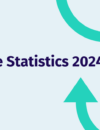
For millions of people living with deafness, the pandemic is upending long-established coping mechanisms. With remote working set to continue, inclusive solutions must be found.
On our blog, we have previously discussed how employers can meet the current moment with a flexible range of options for differently-abled workers, and have spoken with some of the activists and organisations who are campaigning to make this a reality. Today, we are turning our attention to the deaf community, and the specific professional challenges that Coronavirus is posing to people living with deafness.
Action On Hearing Loss (AOHL) has determined that about 12 million people in the UK live with hearing loss – a sixth of the total population. Of those 12 million, almost 1 million are experiencing severe or profound deafness.
The consequences can be severe. Deaf people are more than twice as likely as the general population to suffer from anxiety and depression, illnesses exacerbated by the deep sense of isolation that comes from feeling invisible in life and in the workplace.
A broad survey of the working-age deaf population by AOHL reveals shocking professional disparities. As it stands, only 65% of working-age deaf people are employed, compared to 79% of people without disabilities. Over three-quarters of respondents felt that hearing loss limited their working opportunities. On average, deaf people make £2000 less per year than their non-deaf counterparts – an annual loss of £4 billion in income.
More than two-thirds felt isolated at work, while two-fifths had been forced to retire early due to pervasive problems with communication and accessibility. By most estimates, lost productivity and unemployment due to hearing loss costs the UK £25 billion a year.
Yet, while the Equality Act of 2010 requires employers to make workplaces accessible, and the Access to Work grant provides financial support to aid the transition, 35% of bosses still said that they did not feel confident about employing a person with hearing loss.
These findings paint a grim picture, and Coronavirus is only making matters worse. More recent studies by AOHL found that 75% of people living with deafness feared that working from home would make them less productive, as various coping strategies would no longer be viable.
While the shift to remote working has ensured that millions can stay both safe and productive during the pandemic, the new reliance on conference call platforms is entrenching a sense of exclusion amongst deaf people. For the 150,000 who use British Sign Language (BSL) and the millions who rely on lip-reading, online conference calls (often with a shaky connection) are intensely difficult or downright impossible to take part in.
In response to these concerns, one of the most popular conference call platforms, Zoom, has introduced a range of accessibility features, such as closed captioning and automatic transcripts, a refreshing and meaningful gesture from such a major player in the video call market.
For those who may have returned to the office, the wearing of face masks – while vital – can make communication very difficult between BSL signers and non-signers. Many articles have sprung up espousing the benefits of potential solutions – transparent masks for instance – but deaf people themselves say that this simply highlights the problem of trying to “retrofit” for accessibility, rather than designing for it in the first place.
What is really required of all of us is a greater deal of consideration. Deaf people argue that there are simpler, less high-tech solutions to many of these problems. One-on-one video conferences with deaf colleagues, or even scrapping calls altogether in favour of instant messaging tools. Writing for The Washington Post, professor of creative writing and deaf studies Sara Nović suggests that the pandemic has made it clear that the burden of communication has historically fallen on the deaf people, and now that they unable to “physically do the work”, their non-deaf colleagues must exercise the same degree of thoughtfulness.
At the time of writing, new cases of Covid-19 are surging once again. Many local lockdowns have already been imposed, and greater restrictions look set to return as fears of a second wave are growing. It is not enough for us to sit and wait for things to go back to normal. As we have already highlighted here before, this pandemic does not affect us all equally. And while we are united by this shared experience, we should be doing everything in our power to identify and help those who may be suffering the most. Looking forward to the coming months, let us all resolve to do the work.
For more information about the invaluable work of Action on Hearing Loss, please visit their website.





